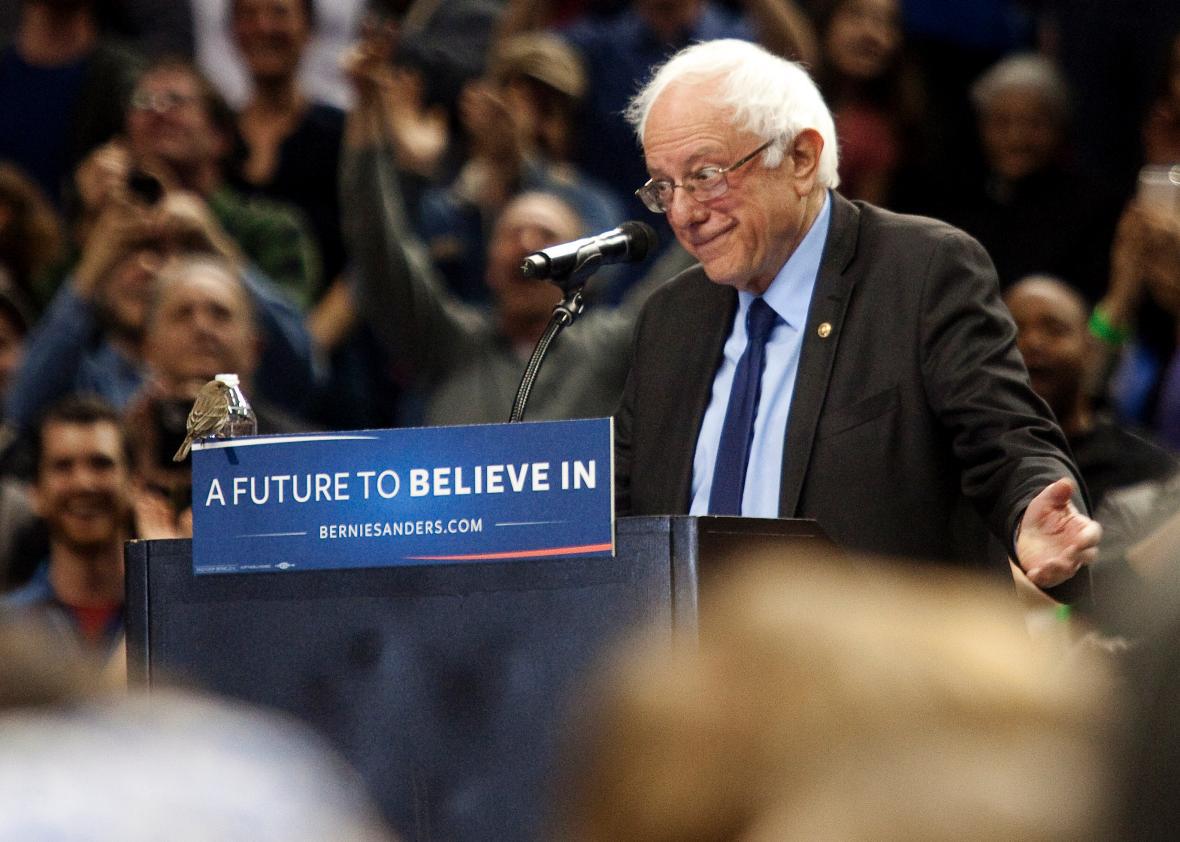Hillary Clinton went four for five on Tuesday, and in the process removed pretty much any remaining doubt about whether she will be the Democratic nominee. Even her rival, Bernie Sanders, appeared to concede as much in a late-night statement that suggested he will shift his focus from winning the nomination to the more attainable goal of shaping the party platform at this summer’s convention.
“The people in every state in this country should have the right to determine who they want as president and what the agenda of the Democratic Party should be,” Sanders said. “That’s why we are in this race until the last vote is cast. That is why this campaign is going to the Democratic National Convention in Philadelphia with as many delegates as possible to fight for a progressive party platform that calls for a $15 an hour minimum wage, an end to our disastrous trade policies, a Medicare-for-all health care system, breaking up Wall Street financial institutions, ending fracking in our country, making public colleges and universities tuition free and passing a carbon tax so we can effectively address the planetary crisis of climate change.”
In one important way, Bernie’s new position is the same as his old one: He says he’ll compete in every remaining nominating contest and take his campaign the whole way to Philadelphia. The difference, though, is that he no longer seems to be trying to convince his supporters that he still has a viable path to actually winning the nomination once he gets there.
That, of course, is because he doesn’t. Here’s a quick look at the math as it stands on Wednesday morning. (Note: I’m working off the Associated Press’ delegate tracker.)
The current delegate scoreboard (including superdelegates):
- Hillary Clinton has 2,151 delegates, or 90 percent of the 2,383 needed to win the nomination
- Bernie Sanders has 1,338 delegates, or 56 percent of the 2,383 needed to win the nomination
There are roughly 1,500 total delegates yet to be allocated:
- Clinton needs only 15 percent of them to reach 2,383
- Sanders, meanwhile, needs 70 percent of them to reach 2,383
Sanders—understandably—is no fan of superdelegates, but even if you remove them from the equation things look only marginally better for him. Here’s a look at pledged delegates won by each candidate to date:
- Clinton has 1,632 pledged delegates—68 percent of the 2,383 needed to secure the nomination, and 81 percent of the 2,027 needed to claim a majority of all pledged delegates.
- Sanders has 1,299 pledged delegates—55 percent of the 2,383 needed to secure the nomination, and 64 percent of the 2,027 needed to claim a majority of all pledged delegates.
Sanders has the money and motivation to press on, and it appears that he will. But given the cold, hard delegate math, he’s likely to get more bang for his buck if he focuses those resources on individual policy debates that he can still influence rather than on a larger political race he can’t.
Elsewhere in Slate: Even Though Sanders Can’t Win the Nomination, He Should Campaign All the Way to the Convention
